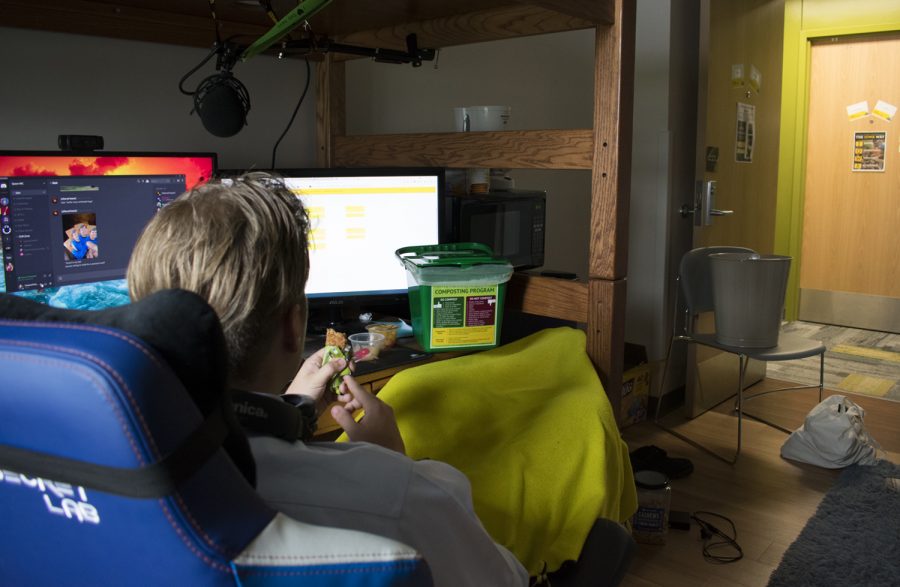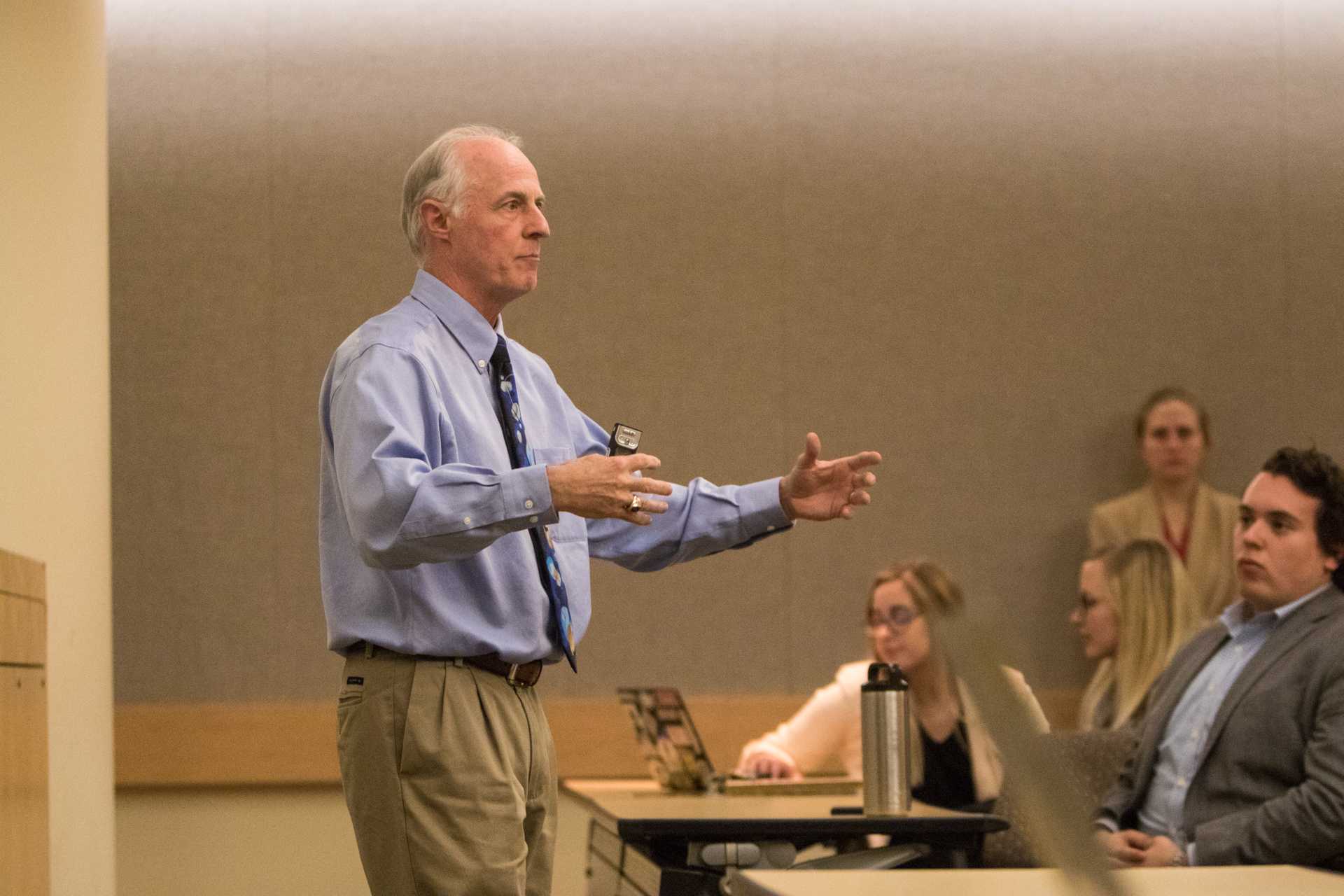UISG and Office of Sustainability introduce dorm compost program
After receiving support from student government and the Office of Sustainability, compost bins are now available for Hawkeyes who live on campus.
A Catlett resident sits at his desk on Tuesday, Aug. 21, 2018. University of Iowa Housing and Dining and the Office of Sustainability have teamed up this year to offer residents the option of composting in their rooms. Composting bins are available for residents at the Office of Sustainability.
August 23, 2018
Students living in the University of Iowa residence halls have a new waste-diversion method at their disposal this year — composting. The program, which is spearheaded by UISG and the Office of Sustainability, aims to provide students with composting bins to dispose of food and paper products that would otherwise end up in landfills.
According to the EPA, Americans throw away an average of 1.3 pounds of food scraps per day, which accounts for approximately 13 percent of the U.S. municipal solid waste. The agency also said around 24 percent of waste is organic material that could be composted.
Beth Mackenzie, the recycling coordinator for the Sustainability Office, said the composting program really began with students.
“We get a lot of students coming into the office asking for composting,” Mackenzie said. “So eventually, we decided to work on a program for students. We definitely understand this may be the first time people may be composting.”
She said the office has handed out around 40 composting bins so far. Although this is a positive first step, she said, education may be the most important element to the program.
In addition to knowing which materials can be composted, Mackenzie said, cooperation between the Sustainability Office and UI Housing & Dining is important. Before receiving a compost bin, residents must sign a roommate agreement. That way, Mackenzie said, roommates can be on the same page about cleaning out the compost bin.
Information about composting can be found on the Sustainability Office website, and there is a sticker on each bin that explains which materials can be composted, she said.
“Anybody who signs up gives us their contact information so we can send them monthly content and answer questions they may have,” Mackenzie said.
She said that rather than installing additional centers for waste diversion, students will use the three dining halls’ composting centers in Burge, Catlett, and Hillcrest.
George McCrory, a communications specialist in the Sustainability Office, said he thinks there are different groups on campus that may benefit from the program.
“I think there are two [types of people] — students who don’t know about composting and students who come from a business or background where they compost,” he said. “We want to incorporate composting into their sustainable living pattern.”
McCrory said he thinks the program will initially spread by word-of-mouth, and the Sustainability Office will be at events throughout the semester to increase the program’s participation.
To McCrory, composting is an important element in waste diversion — if compostable materials are not disposed of properly, he said, it will end up in landfills.
Eden DeWald, a Sustainability Office intern and former UISG sustainability chair, said securing funding from student government and talking to Housing & Dining has led to a program that will hopefully affect students for years to come.
“What I would say to students who have never composted before is don’t be nervous, scared,” DeWald said. “Composted material creates nutrient-rich soil … it’s an easy way to get involved [with sustainability,] and we have a lot of resources for students who may be interested.”


















